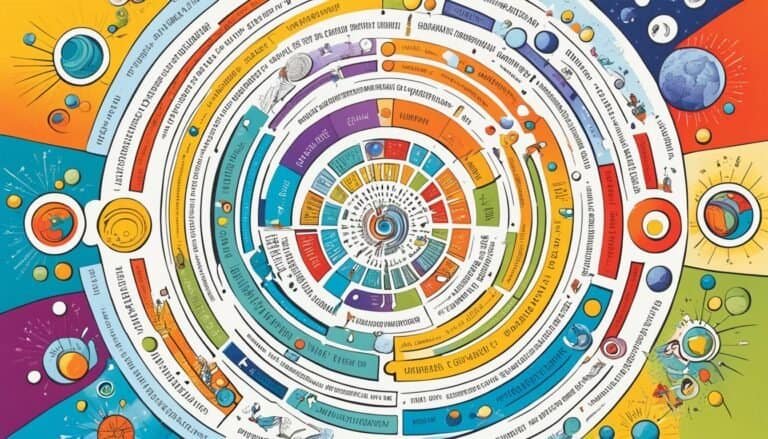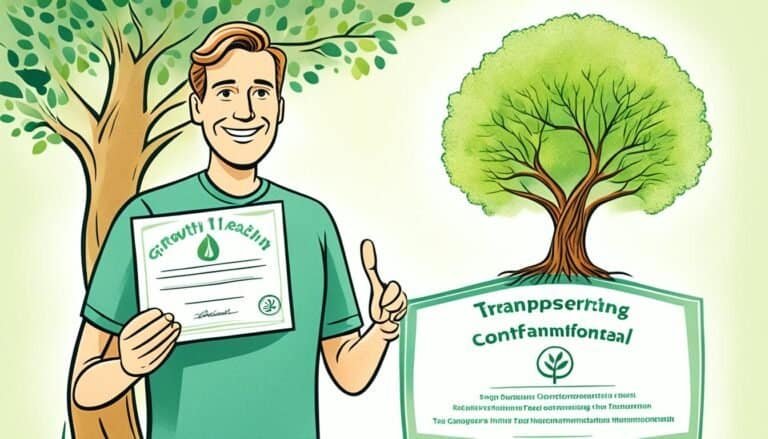Understanding the Power of The Placebo Effect
Have you ever thought about how a sugar pill can work as well as a real medicine? This amazing thing called The Placebo Effect shows us that what we believe can really change our health. It makes us question the idea that only medicine can heal us. It shows how our minds and bodies work together in amazing ways.
As we look into the science of placebos, you’ll see they’re not just in our heads. They show the deep link between our minds and bodies. This link can actually change our bodies in real ways.
This article will tell you about the amazing things placebos can do. You’ll learn about their history in medicine and how they work. By understanding the science, you’ll see how the placebo effect helps people get better in many ways. It shows that believing in a treatment can be as important as the treatment itself.
Key Takeaways
- The placebo effect can lead to real changes in the body, like a faster heart rate or higher blood pressure.
- Conditions like Parkinson’s disease and depression have gotten better with placebo treatments.
- What we expect and our past experiences can make treatments and placebos work better.
- Good communication between doctors and patients helps make treatments more effective.
- Studies show that placebos are getting more powerful over time in different areas of treatment.
What is The Placebo Effect?
The placebo effect is when people feel better after taking a fake treatment, like a sugar pill. It comes from the Latin word meaning “I shall please.” This shows how big a role belief plays in how our bodies react to treatments.
In hospitals, the placebo effect is key. It shows how believing in a treatment can really change health outcomes. Even if a treatment has no real medicine, just thinking it will help can make a difference. Studies show that believing in a treatment can cause real changes in the body.
Studies show the placebo effect works for many health issues like depression, pain, sleep problems, and menopause. This shows how strong our expectations can be. People who think a placebo will help them often feel real physical effects, like a faster heart rate and higher blood pressure.
Learning about the placebo effect helps us understand how patients react to treatments. But, it also makes clinical trials harder. It’s hard to tell if a real medicine works or if it’s just the placebo effect. We need to study how our expectations and treatments work together to make treatments better and manage diseases well.
The Historical Role of Placebos in Medicine
Placebos have been part of medicine for centuries, even before we knew much about diseases. They were used back then when we didn’t fully understand how diseases worked. The historical role of placebos shows how they’ve helped shape health outcomes, especially before modern science came along.
In the 1940s, placebos took a big step forward with the start of placebo-controlled clinical trials. This new way of testing helped scientists understand the placebo effect better. It let them see what was real and what was just in people’s minds. This changed how we test and prove if medicines work.
Today, placebos are not just for testing. They also help treat things like migraines, joint pain, and asthma. This shows how important it is to understand the placebo effect in both old and new times.
But, placebos can also have bad effects, known as the nocebo effect. This can make a patient’s health worse. Researchers have looked into why the placebo effect happens, including things like conditioning and how doctors and patients connect.
Now, doctors are thinking more about the ethics of using placebos. They’ve moved from seeing them as just tricks to seeing their real benefits. Early studies helped us understand how expectations and treatments work together. This has made placebos a key part of medical research.
How the Placebo Effect Works
The way placebos work is quite interesting, showing how our minds and bodies interact. Studies show that 30% to 60% of people feel less pain after taking a placebo. This shows that our thoughts greatly affect our health.
Studies using brain scans have shown how our brains change when we take a placebo. For example, a study with people who had depression found that a fake treatment helped reduce symptoms. It also made parts of the brain more active, which helps with feelings and stress.
When it comes to pain, what we expect from treatment can change how we feel. A 2014 study on migraines showed that people felt pain differently depending on if they got a placebo or real medicine. This shows how big a role our expectations play in the placebo effect.
Some people are more likely to feel the effects of placebos because of their genes. They have a variant linked to more dopamine. This shows how our genes and thoughts work together to cause real changes in our bodies.
Learning about the placebo effect helps us understand human biology better. It shows how our minds and bodies are closely linked. Researchers are still studying how placebos work and their effects on health. They hope to find out which symptoms placebos can help with and how they can be used in medicine.
The Impact of Expectation and Conditioning
Expectation and conditioning are key to the placebo effect’s success. They shape how patients react to treatments. By boosting positive thoughts, we can improve health outcomes. This is because positive beliefs can reduce stress hormones and make symptoms feel better.
Understanding Patient Expectations
Patient expectations are crucial in the mind-body link. They affect how well the placebo effect works. High hopes for treatment can lead to better results, even with fake treatments. Studies since the 1950s show how our brains react to what we expect.
These studies found that expecting relief changes our brain chemistry. This, in turn, affects our health.
Classical Conditioning and the Placebo Effect
Classical conditioning is a key way that expectation boosts the placebo effect. It links a treatment with its benefits in our minds. This makes patients respond well to treatments, even if they’re just placebos.
Early research by Pavlov showed how our bodies can react to certain things without us thinking about it. Later studies confirmed that these reactions can help our health. They can boost our immune system and ease pain.
Studies by Richard J. Herrnstein and Robert Ader showed animals can learn to react to placebos. This idea could help make treatments more effective. Using expectation and conditioning in healthcare can lead to better healing and a more complete approach to health.
| Year | Study | Findings |
|---|---|---|
| 1927 | Pavlov | Explored conditioned reflexes and their implications for behavior. |
| 1957 | Gliedman & Kurland | Investigation of conditional reflexes in placebo research. |
| 1985 | Wickramasekera | Predicted effects of conditioned responses on placebos. |
| 2011 | Colloca & Miller | Analyzed formation mechanisms of placebo responses. |
| 2015 | Wager & Atlas | Connected placebo effects with learning and health contexts. |
Placebo Effects in Clinical Trials
Placebo-controlled trials are key in creating new medicines. They let researchers see if a treatment works or if it’s just the placebo effect. This helps figure out if health improvements come from the medicine or not.
In clinical trials, placebo effects can make results tricky to understand. Using a double-blind setup helps. This way, no one knows who gets the real treatment and who gets the placebo. It helps keep the study fair.
Just going to a doctor can make people feel better, even if the treatment doesn’t work. Getting more attention from doctors can make people more likely to feel better. The strength of these effects can change for many reasons:
- Patient expectations
- The setting of the trial
- Conditioning effects
- Communication style of the healthcare provider
Some placebos act like the real drug’s side effects to keep the study blind. This can make it hard to tell if the treatment is working. Some studies start with a period where nothing changes to help control for placebo effects.
| Factor | Impact on Placebo Response |
|---|---|
| Patient Expectations | Higher expectations can enhance placebo effects. |
| Trial Design | Double-blind designs reduce bias. |
| Healthcare Provider Interaction | More attention may increase placebo responses. |
| Conditioning | Pavlovian conditioning can amplify effects. |
Looking into placebo effects in clinical trials is crucial. It helps researchers make better studies. This way, they can see if treatments really work. Placebo effects often make results more complex and need careful thought in drug development.
Conditions Affected by the Placebo Effect
The placebo effect changes many health issues, touching both body and mind. It helps us understand how to better treat patients. It’s especially important in managing pain, helping with mental health, and treating long-term illnesses.
Pain Management
Pain relief is a key area where the placebo effect is studied. Studies show that just thinking you’re getting a treatment can help reduce pain. This happens because the brain sends out its own pain fighters and changes how we feel pain.
Brain scans also show how our minds play a big part in feeling pain. This shows that our thoughts and feelings can really help us manage pain better.
Psychological Healing
Our minds also heal faster with the help of the placebo effect. In treating depression, about half of the improvement seen is just from the placebo effect. This shows how believing in a treatment can make a big difference.
But, if our brains aren’t working right, like in Alzheimer’s disease, the placebo effect can be weaker. This shows how complex the link between our minds and healing can be.
Chronic Conditions
Conditions like anxiety and long-term pain also get better with the placebo effect. In people with chronic pain, the brain’s own pain fighters increase when they think they’re getting treatment. This shows that our minds can really affect how we feel and respond to treatment.
This idea is key for treating long-term conditions. How we feel and what we believe about our treatment can greatly affect how well it works.
The Mind-Body Connection and Psychological Healing
The mind-body connection is now a big topic, especially in psychological healing. It shows how our thoughts can really affect our health. Studies have found that placebo effects prove this link, showing that what we believe can change our health.
Researchers have looked into how our mind affects our body. In the last ten years, they’ve learned a lot. But, they still struggle to use these findings in real medical care. A big study showed that the placebo effect is promising but not always a cure-all.
Studies on acupuncture are interesting. Patients who got real or fake acupuncture felt better than those who didn’t. This shows how believing in a treatment can help us heal.
Some research says that how we see stress can affect our health and how long we live. This shows the power of the mind-body connection and the role of psychological healing in staying healthy.
The link between our thoughts and our body’s response is complex. This makes us look at health in a new way. It helps us understand how placebo effects can lead to new ways to heal.
Cultural Variations in Placebo Responses
Culture greatly affects how people respond to placebos. Studies show that placebo effects can vary from 0 to 100 percent. This shows how culture deeply influences these results. Some groups may feel better because of their traditional beliefs in medicine and holistic care.
A study found big differences in how placebos worked for ulcers in different countries. Germans saw a 59% healing rate, while the Dutch and Danish saw 22%. In Brazil, it was only 7%. These numbers show how culture affects placebo responses.
Placebo effects don’t work the same for all health issues. What works well for one condition might not work for another. Cultural beliefs play a big role in this. Studies are needed to understand how culture and biology interact.
Cultural beliefs do more than just affect health right away. They can also change long-term health outcomes. People following traditional Chinese practices might live shorter lives than European Americans. This shows that culture and psychology can affect health in big ways.
| Population | Average Placebo Healing Rate |
|---|---|
| German | 59% |
| Dutch | 22% |
| Danish | 22% |
| Brazilian | 7% |
Conclusion
The power of placebo shows how our minds and bodies are deeply connected. It affects our health in big ways. Studies suggest that up to 40% of what doctors prescribe could be like placebos. Also, 77% of doctors use placebos often.
This shows how important our beliefs and expectations are in getting better. As we learn more, we see how crucial it is to understand this link. It helps doctors make better treatment plans.
Placebo effects differ a lot depending on the condition. They can be as low as 20% for schizophrenia or as high as 70% for depression. Brain scans show which parts of the brain help with these effects. This means our thoughts and feelings really affect how we feel physically.
This knowledge is really exciting for the future of medicine. By using the power of placebo, doctors could make treatments work better. They could also focus more on what patients need, both mentally and physically.
Combining psychology with medicine could lead to better treatments. This could make patients feel better and get better results overall.







